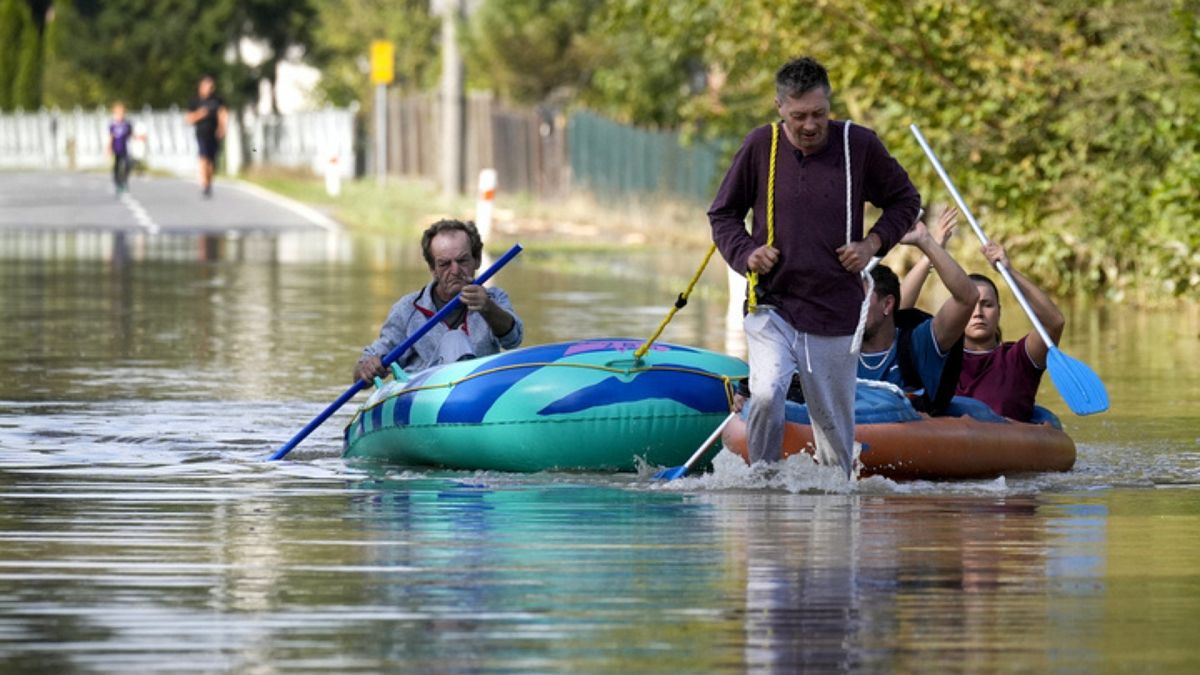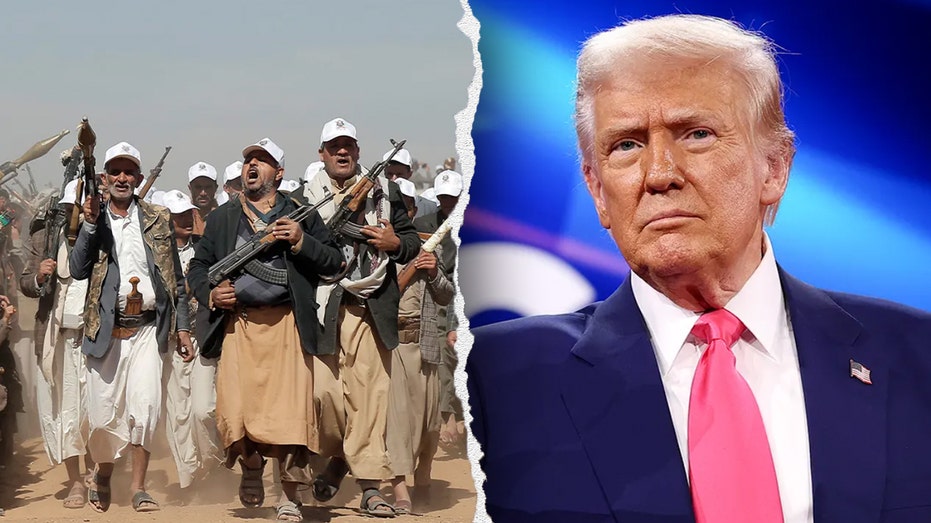Russia's war on Ukraine unlikely to end in 2024; Congress plays pivotal role in direction conflict takes
The coming year in Ukraine will depend largely on which side — Kyiv or Moscow — can mobilize its reinforcements sooner and in greater force while the other side struggles with morale.

The direction of the third year of the Russia-Ukraine war will largely depend upon whether Congress can overcome hesitation about continued support as fatigue sets in, experts told Fox News Digital.
"America’s partnerships and alliances have never been more important than they are right now," Kenneth J Braithwaite, former secretary of the Navy in the Trump administration and former ambassador to Norway, argued.
"Communism is alive and well, and we are up against it as Russia wages war against Europe and China seeks to exert more influence on the globe," Braithwaite said. "That means Americans need to look outside our borders at how we can protect ourselves from these looming challenges, starting with one of our greatest force multipliers: Our partnerships and willingness to stand united against authoritarian threats to sovereignty."
The second year of the Ukraine invasion proved a truly chaotic one, starting with Russia seeming to suffer catastrophic setbacks when the vital Wagner forces turned traitor and tried to march on Moscow. Wagner chief Yevgeny Prigozhin died after his plane exploded, killing him and everyone aboard.
Russian President Vladimir Putin appeared to rally and beat back Ukraine’s counteroffensive, much to Ukrainian President Volodymyr Zelenskyy’s frustration. Putin grew so confident in his standing he refused to renew a U.N.-backed deal to secure access for grain shipments through the Black Sea, turning and attacking Ukraine.
Ukraine countered with an impressive naval effort that destroyed a dozen Russian ships in the Black Sea, pushing the fleet out of the western part of the sea and allowing Kyiv to establish its own grain corridor.
As the dust settles following that roller coaster series of events, the third year of the war remains vague and dependent upon two major developments. Russia or Ukraine will both look to overcome war fatigue to gain a major advantage. And Ukraine’s chances rest largely on whether the U.S. Congress can overcome its hesitation about continued support for Ukraine without a clear end in sight.
"For Ukraine, the shell hunger and the manpower shortages caused by, and in the former case caused in part by U.S. delays to aid, it's a challenging year," John Hardie, the deputy director of the Foundation for Defense of Democracies (FDD)’s Russia Program, told Fox News Digital.
BIDEN CALLED OUT FOR EMBOLDENING PUTIN AMID UKRAINE WAR, NAVALNY'S DEATH
"It was always going to be a tough year no matter what happened with U.S. aid," Hardie stressed. "The congressional delays have just made it worse. So, I think for Ukraine early this year, they’ll just try to hold on by the teeth and try to make it through 2025, when — if we put the pieces in place this year — I think Ukraine could regain the advantage.
"But it obviously depends on the right decisions being made and implemented this year."
Congress has failed to approve new aid packages that would supply Ukraine with much-needed defense equipment, munitions and air defense systems. A rare Sunday vote Feb. 11 in the Senate pushed forward an aid package for Ukraine along with Israel and other U.S. allies that would provide $60 billion in aid to Ukraine, including $8 billion for Kyiv and other assistance.
Several holdouts in Congress, including senators JD Vance, R-Ohio.; Josh Hawley, R-Mo.; and Tommy Tuberville, R-Ala., have spoken against continued support for Ukraine.
TRUMP SAID HE COULD END UKRAINE WAR NEARLY A YEAR AGO BUT STILL HASN'T LAID OUT SPECIFICS
Vance has argued that he sees little sense in "unlimited, unaccounted-for aid to Ukraine without any goals in mind," while Tuberville found it difficult to continue "paying Ukrainian farmers" after "we just punted the farm bill for American farmers [to] next year."
Mark Green, President and CEO of the Wilson Center and former administrator of the U.S. Agency for International Development (USAID) under President Trump, argued in favor of continuing to support Ukraine. He worried that "standing by and letting Putin’s forces win would embolden our rivals elsewhere."
"What scares Putin more than anything else is democratic success on his borders," Green told Fox News Digital. "That’s why his invasion of Ukraine was not merely a military invasion: He demolished infrastructure to demoralize Ukrainians and weaponized food to punish anyone who stands with Ukraine.
"He wants to undermine Ukraine and the rules-based system we created in every way, which is why the U.S. needs a wide range of tools to help the Ukrainians defend themselves. The world is watching."
TOM COTTON MAKES CASE TO GIVE UKRAINE AID WHILE PROTECTING US BORDER
Without the aid, Ukraine will find it difficult to sustain its defense against Russia, Zelenskyy said in an exclusive interview this week with Bret Baier, FOX News' chief political anchor and executive editor of "Special Report."
Zelenskyy claimed that Russia has lost five troops for every one Ukrainian, and he highlighted that Russia’s only significant gain in the past year was to take the city of Avdiivka near Donetsk.
Looking into year three, FDD’s Hardie worried about a Ukraine that did not have the consistent U.S. support to overcome war fatigue while Russia faces issues that could prove catastrophic in the coming months.
"I think both sides have a structural manpower problem where they can't rotate forces, and troops become increasingly exhausted," Hardie said. "Despite having both mobilized, they haven't done so to the extent that they could actually take tens of thousands of forces or more off the front line and let them rest for months on end.
"Folks on both sides maybe get a week of vacation here or there, but it's not a real force rotation where you can give someone a date and say, 'This is your deployment window, and once you're done, you’re done,'" he added. "So, that hasn't affected morale.
PRESSURE GROWS ON JOHNSON TO MAKE MOVE ON UKRAINE AID AS RUSSIAN INVASION NEARS 2-YEAR MARK
"It's sort of both sides are struggling with that. For Ukraine, the issue is mobilizing young men. And, for Russians, it's just one example of political risk and the economic risk of another round of mobilization," Hardie added. "So, I think those are the things to watch out for."
Ukraine will seek to remedy that issue with changes to its mobilization laws, which have slowly progressed through rounds of revisions as lawmakers have resisted several measures, including increasing the age for the draft.
Putin issued a decree to expand his forces by around 170,000 men, bringing the troop total to 1.32 million, not including any confirmed death count, which would significantly diminish that total if verified.
The Kremlin went to great pains to ensure that the public understands the expansion does not indicate an impending draft, which proved wildly unpopular when Putin rolled it out in 2022 after promising that he would not do so.
GERMAN LAWMAKERS REJECT OPPOSITION CALL TO SEND TAURUS LONG-RANGE CRUISE MISSILES TO UKRAINE
Putin on Friday promised to continue improving Russia’s military power, including — once again — its nuclear capabilities, which he promised would remain in modernized and good order, according to Reuters.
"Incorporating our real combat experience, we will continue to strengthen the Armed Forces in every possible way, including ongoing re-equipping and modernization efforts," Putin said.
"Today, the share of modern weapons and equipment in the strategic nuclear forces has already reached 95%, while the naval component of the 'nuclear triad' is at almost 100%," he added.
Zelenskyy will continue to fight for support and to convince Congress to back Kyiv, even if things remain unclear in the immediate future as his country faces an existential crisis.
"My message is, if they want to be very pragmatic, the price, we are asking now to support, this price is less than it will be in the future. … They will pay much more, much more. We just want to live, to survive," Zelenskyy said during his interview with Baier. "We don't have [an] alternative."
What's Your Reaction?
















